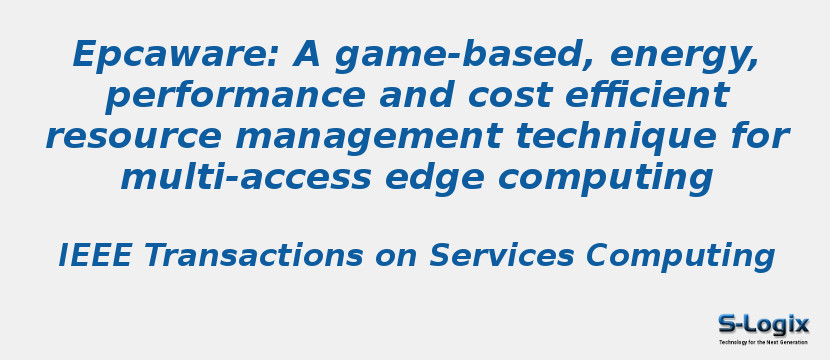Research Area: Edge Computing
Internet of Things (IoT) is producing an extraordinary volume of data daily, and it is possible that the data may become useless while on its way to the cloud, due to long distances. Fog or edge computing is a new model for analysing and acting on time-sensitive data, adjacent to where it is produced. Further, cloud services provided by large companies such as Google, can also be localised to improve response time and service agility. This is accomplished through deploying small-scale datacentres in various locations, where needed in proximity of users; and connected to a centralised cloud that establish a multi-access edge computing (MEC). The MEC setup involves three parties, i.e. service-providers (IaaS), application-providers (SaaS), network-providers (NaaS); which might have different goals, therefore, making resource management difficult. Unlike existing literature, we consider resource management with-respect-to all parties; and suggest game-theoretic resource management techniques to minimise infrastructure energy consumption and costs while ensuring applications performance. Our empirical evaluation, using Googles workload traces, suggests that our approach could reduce up to 11.95% energy consumption, and ~17.86% user costs with negligible loss in performance. Moreover, IaaS can reduce up-to 20.27% energy bills and NaaS can increase their costs-savings up-to 18.52% as compared to other methods.
Keywords:
Author(s) Name: Muhammad Zakarya; Lee Gillam; Hashim Ali; Izaz Rahman; Khaled Salah; Rahim Khan; Omer Rana; Rajkumar Buyya
Journal name: IEEE Transactions on Services Computing
Conferrence name:
Publisher name: IEEE
DOI: 10.1109/TSC.2020.3005347
Volume Information: Page(s): 1 - 1
